interview
Ori-mono making “From Kanata”
She creates kimono dresses and tea ceremony dresses in Kyoto.
She transforms traditional and beloved textiles such as kimonos, fabrics, and obi into new forms to spread to the world.
“Ori-mono making “From Kanata”” offers items such as kimono dresses and tea ceremony dresses on Mercari Shops.
Although she now spends her days dealing with kimonos, she had no relationship with them before starting her activities.
We asked her about why she started “From Kanata,” her motivation and activities, what she values, and her future goals.
The Beginning of Kanata’s Kimono Casual Journey
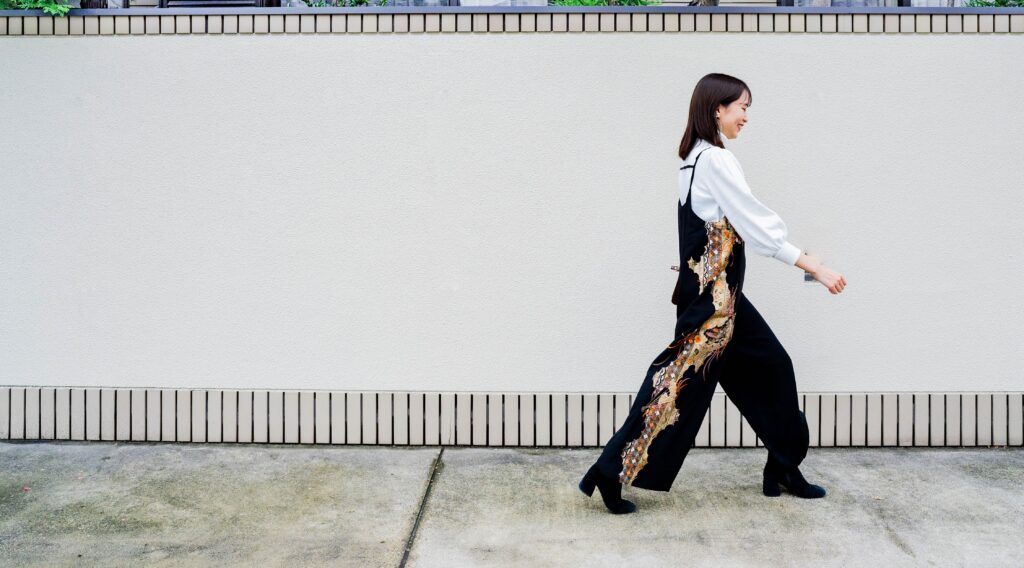
——— Can you tell us what led you to start this business?
From Kanata (hereinafter referred to as Kanata): I started this business based on the teachings of the person who changed my way of life. This person values everything, visible or invisible, humans, animals, and plants, and I learned a lot from them.
This person heard that “several tens of thousands of tons of historic kimono are incinerated in Kyoto City alone each year” and felt a desire to do something about it. They started the business with the hope that by wearing kimono as clothing, people who see it could learn a little about the beauty of kimono.
I was in charge of sales and communication with the seamstresses.
When that person moved to a different business, I raised my hand to take over.
——— Were you originally interested in kimono or traditional Japanese culture?
Kanata:Originally, I worked for a computer company and had no connection to kimono or culture.
However, as I became involved in this business, I strongly felt that we cannot let this business die out.
When I moved from Tokyo to Kyoto 30 years ago after getting married, I was surprised to find that “tradition and culture” were a part of daily life. Over the years, I learned about kimono from my husband’s mother, who had been working in the industry for a long time, and even dipped my toes into the world of tea ceremony. It’s been about four or five years since then.
——— Did you previously have a brand name different from Kanata?
Kanata:Yes. After starting Kanata, I had to work with the patterns that were passed down to me, and so I collaborate with creators who sympathize with our cause to design and produce the garments as a team.
Kanata’s Activities and Creations
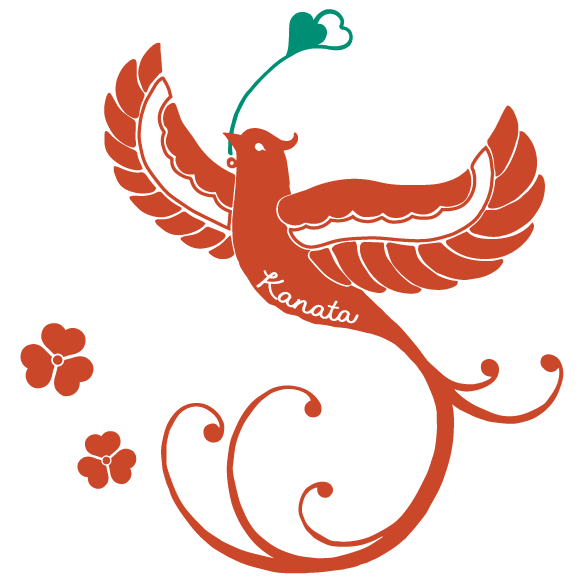
——— Can you tell me about Kanata’s business?
Kanata:Our business involves transforming traditional Japanese clothing such as kimonos, textiles, and obi belts, which have a rich history of being cherished, into new forms for the modern world.
We create dresses that can be worn for tea ceremonies, as well as clothes that are versatile for everyday wear for people of all ages, from young to old. We also offer made-to-order services.
The name “Kanata” comes from the meaning of creating new things from all types of traditional textiles, and sending them from Kanata (beyond, into the future, forever in Japanese).
What the Brand Values: An Inside Look at Kanata
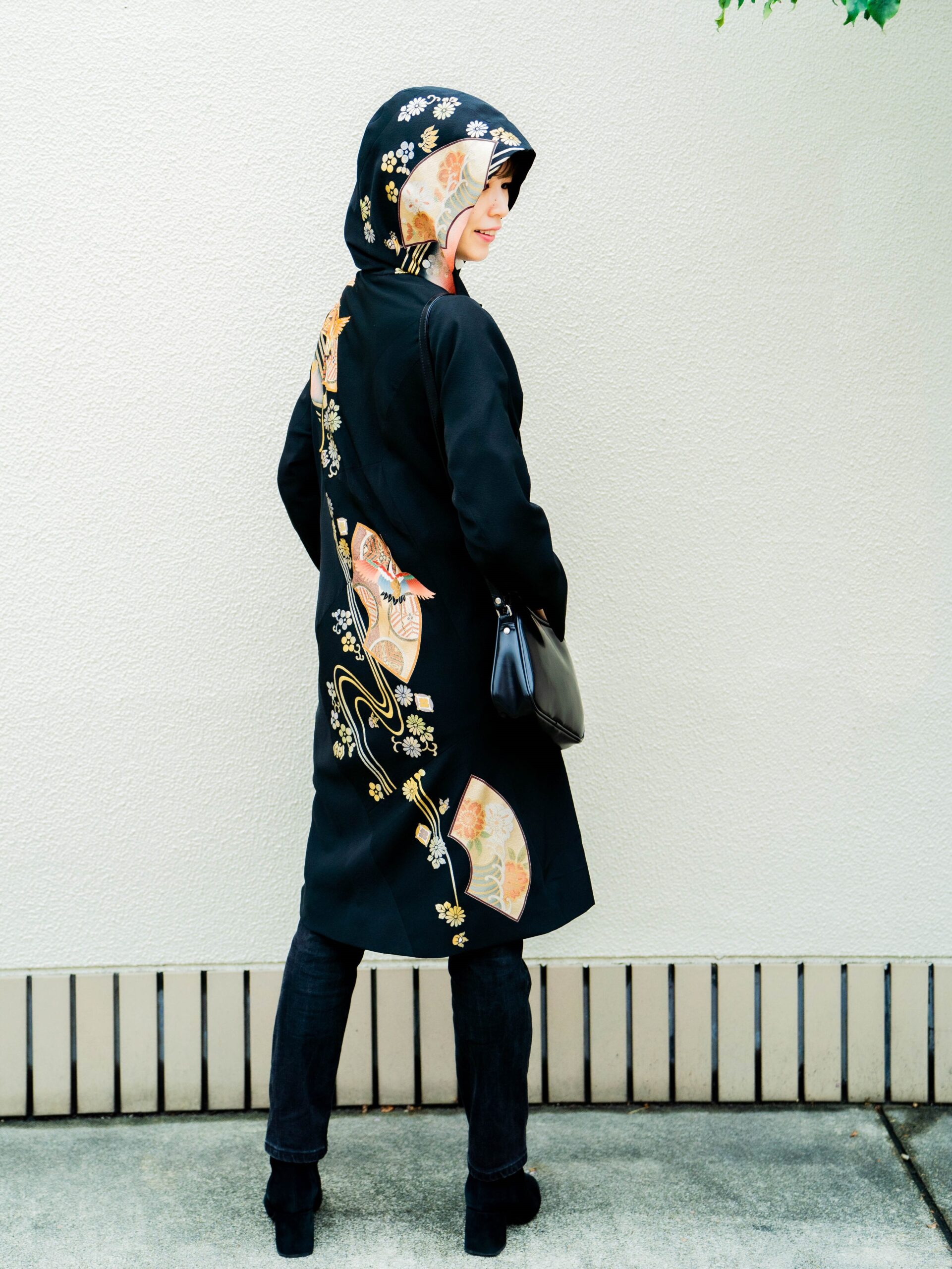
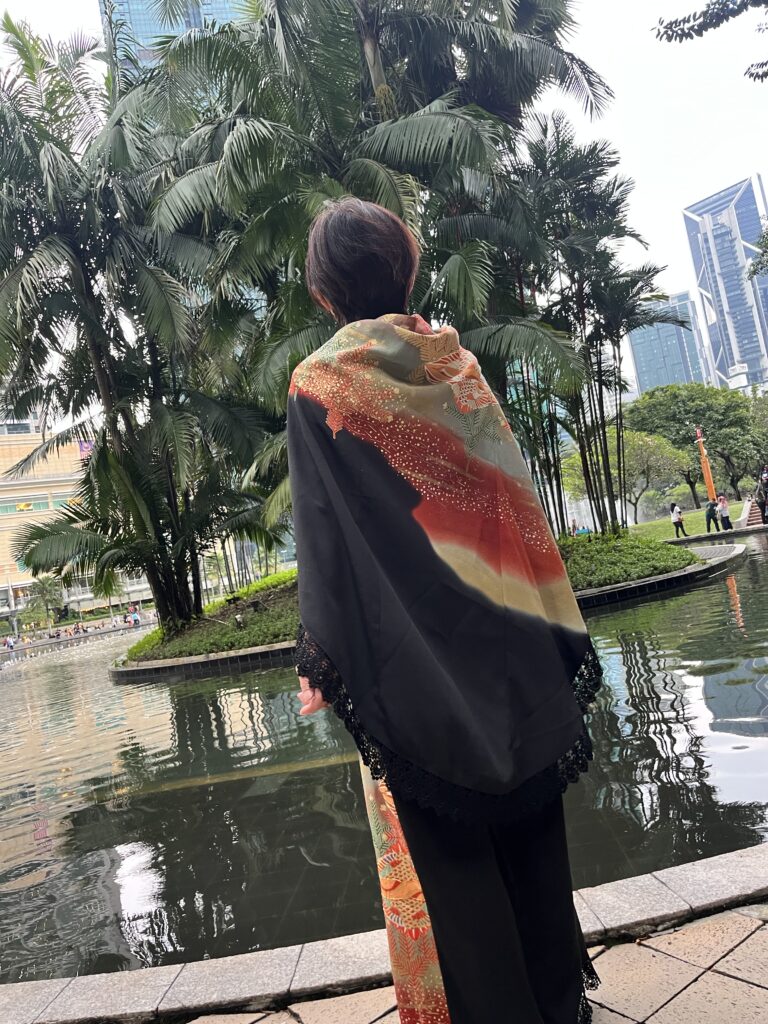
——— Are there any particular values or commitments that Kanata holds as a brand?
Kanata:As I’ve mentioned before, one of our core values is the belief that our feelings and passion will always be conveyed through our work.
I personally take great care to approach each kimono with sincerity and consideration of what would make it happy.
I have learned that there are always two factors that contribute to the outcome of any situation: the visible and the invisible influences.
For example, in the process of creating kimono clothes, my own background and spiritual aspects must be in harmony to produce something beautiful that can truly satisfy our customers. Therefore, I make an effort to cultivate these qualities within myself.
In addition, since I live in Kyoto and have strong ties to this city, I believe it is important that all of our textiles come from Kyoto and that we don’t set delivery deadlines for our seamstresses.
We have mainly housewives and people who sew in their free time to make our products, and I want them to prioritize their own lives and not feel pressured to meet quotas.
——— Have there been any issues arising from not having deadlines?
Kanata:When we take orders from customers, we always make sure to get their consent first before proceeding with production.
In general, we simply release the finished product without any set deadline, so there have been no issues.
I believe that the negative effects of deadlines, such as stress and anxiety, outweigh any potential benefits. When I was personally living under deadlines, it was really tough, so I choose not to set any deadlines for the sake of creating beautiful products.
The Impact Kanata Hopes to Make on Society
——— Can you tell us about the impact you want to have on society through your brand?
Kanata:Through Kanata, I want people to learn about the beauty and wonder of traditional Japanese clothing, particularly the kimono, which has introduced me to many new worlds that I never knew existed.
However, I understand that the kimono can sometimes seem intimidating and inaccessible, and many people may not have the opportunity to see or wear one. ただ、着物は敷居が高いイメージがあったり、なかなか手にする・目にする機会というのが少なかったりすると思います。
So, through Kanata, I hope to make the beauty of traditional Japanese clothing more accessible to everyone in a casual way.
Future Prospects and Goals for Kanata
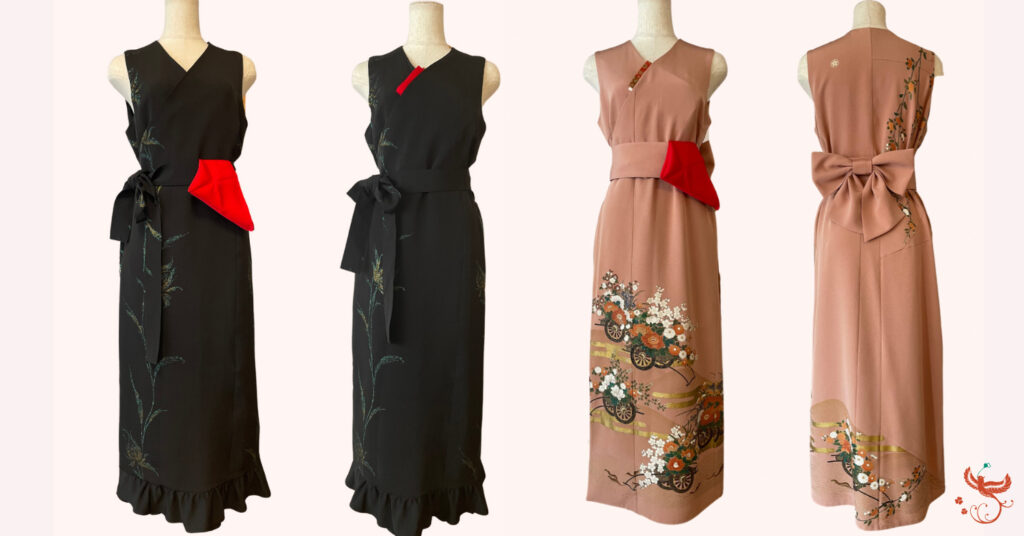
——— Do you have any plans or goals for the future?
Kanata:I want to focus on creating dresses for tea ceremonies, which I call “tea ceremony dresses.”
When practicing tea ceremony in Western clothing, you need a belt and practice clothes with a fukusa (a small cloth used in tea ceremony), but it’s hard to find something that you really like among commercially available clothing.洋服でお茶のお稽古をする場合、帛紗(ふくさ)をつけるためのベルトや、お稽古着が必要ですが、市販の服にはなかなか気に入るものがありませんでした。
My husband’s mother used to go to tea ceremony classes with me, but she can no longer wear a kimono due to her back condition. So, I made a chado dress from her mother’s kimono and gave it to her as a gift. With a chado dress, you can easily practice tea ceremony even if you can’t wear a kimono, and it’s a way to honor and use someone’s cherished kimono in a new way, so it’s a win-win situation.
In addition, I want to sell my products overseas.
Currently, I sell my products on Mercari Shops, but it’s difficult to sell them overseas through that platform. Therefore, I want to create a system that allows me to sell my products overseas.
Conclusion
In this interview, we had the opportunity to ask Kanata from “Ori-mono making “From Kanata” about the inspiration behind starting her brand of Kimono Casual wear and what she values most in her work.
Thank you for taking the time to speak with us, Kanata.
For those interested in Kanata’s beautiful kimono dresses or traditional tea ceremony wear, be sure to check out her Mercari Shops page.
She also offers custom orders, so don’t hesitate to reach out if you’re interested.
Ori-mono making “From Kanata”
-Kimono dress & Tea Ceremony Dress-
Lit Link:Kanatakimono
Mercari Shops:Ori-mono making From Kanata
Instagram:kanata3523
And thank you to everyone for watching until the end.

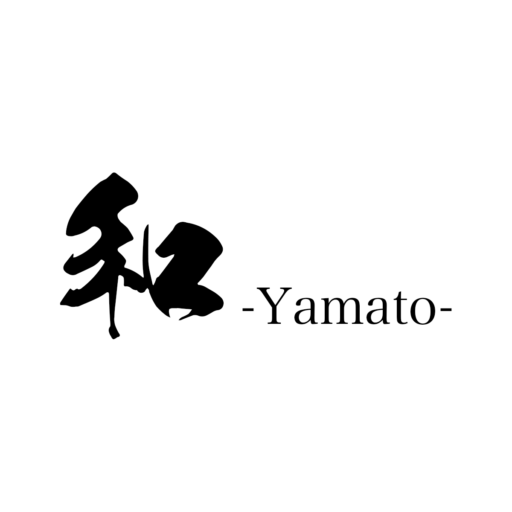

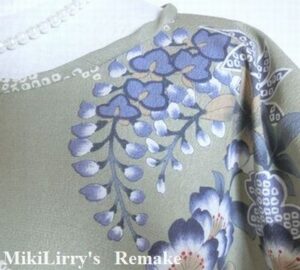
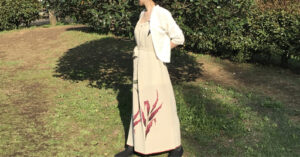





コメント